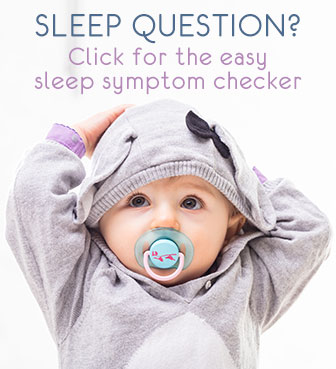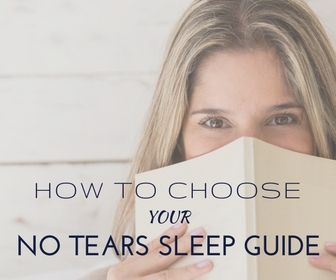How much Sleep Is Enough for Your Baby?
Author Name: Heidi Holvoet, PhD
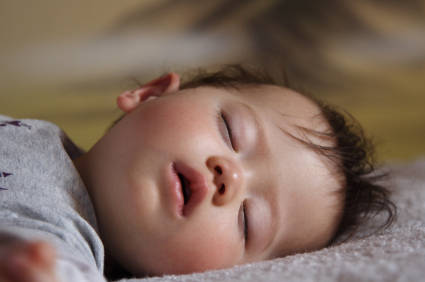
How much sleep is enough? There are two ways to answer this question:
- Observe (useful checks below)
- Compare average amounts (listed below)
A
combination
of these two will give you the best idea about your little one's
required hours.
The first option, even though subjective, is in fact the most reliable.
Your
child's behavior
are the
best
signs
of
how
much is enough
because perfectly tailored to her.
Checking the
average amounts (hours)
at different ages can be a useful,
objective,
indicator. At the same time it's important to take the numbers for what
they
are: averages. That means there is a lot of room for variation.
Is my baby sleeping enough?
By paying attention to your boy or girl's behavior, you can find out whether he or she is sleeping enough, or too little.
She's not tired ...
A
baby who does not sleep enough will be
over-tired
.
Over-tiredness is not always easy to recognize because it doesn't
necessarily
show as sleepiness.
On the contrary: an over-tired baby or toddler may
be very active,
bouncing
up and down till long past bedtime
...
However, being over-tired makes it much more
difficult to
settle for a restful nap or night. An overtired baby won't go to sleep easily. And won't sleep so well.
And that makes it a very common
myth
:
parents with a young child who does not fall asleep before say 10pm at
night,
often
wrongly think that
she is not tired
. In most cases though, the reason is
over-tiredness.
Shifting to an earlier bedtime and/or overall balancing the daytime
sleep schedule
(naps) - sometimes drastically - is the solution:
you will almost certainly see better settling into longer stretches.
How is your baby?
- Is your baby happy, alert and nicely active most of the time?
- Is your baby healthy and does she feed well?
- Does your baby wake up refreshed after a nap or in the morning?
- Does your baby settle for naps/nights and wake up at regular times, without you waking her up?
When you answer
yes
to these questions, your baby is quite probably sleeping enough. Keep
coming back to these questions if you are in doubt in the future.
Of course it is
normal for your little one to be fussy and cranky from time to time,
but if it
is most of the time, then she may not be rested enough.
If your baby often
crashes
while playing or at moments where she wouldn't normally sleep,
that may also indicate too little sleep.
If your baby paler than usual and easily falls ill, that may also be an
indication.
These can be signs over over-tiredness and as we know, an over-tired baby won't sleep easily. So if this is happening, it'll be important to
help your
baby sleep more
. Short-term this means don't hesitate to extend naps, or help with settling, by holding, nursing, rocking or otherwise helping.
Then longer-term. the best way is to start at the basics:
install a
bedtime
routine
and a regular
daily
schedule
that fits her age and is flexible enough for her
needs.
No Tears Naps (aka "Nap in a Snap"), my
step-to-step nap
guide
,
gives detailed instructions to help understand your little one's needs
and how to pour those into a good-fit daily routine for optimal naps,
which in turn result in optimal nights.
What do you think?
Does your baby get much less sleep than you expect?
Do you feel she or he should get more at this age?
Most parents think their babies do not get as much as they should,
although that is not necessarily the case. We would just love to get
longer naps and nights, but unfortunately, a lot of babies just cannot
- and do
not need to - sleep as much as we would like.
How much sleep is enough, theoretically?
A very easy way to check whether your little baby is sleeping enough:
write
down for a couple of days how much she sleeps during the day and at
night. Then compare to the numbers below.
Too easy
,
unfortunately: the numbers only show how an average, based on reserach studies.
Accurate as averages, they're not super reliable for how much is enough
for
your
baby.
So use the numbers as a
soft
guideline, and focus on assessing
your baby's behavior and feelings, as discussed.
above.
About the numbers
The numbers shown, whether on this site or elsewhere, are always
average sleep hours.
They are not based on what would be best for any child, but on how a
given
group of babies sleep, on average. The numbers are also regional and
culture dependent.
[1]
Please look at the numbers that way and remember that they are not absolute.
An
average
of 17 hours a day, means that there are also newborns who
sleep 23
hours a day and others who do no more than 11 hours.
I can testify: at 1 month my son slept a total of 12 hours during the
'night', zero during the day...
If you worry about your little one sleeping too
much or too little, never hesitate to consult your doctor.
On average, a
newborn
sleeps
17 hours per day. They wake up about
every four hours. This is the same during the day and at night.
From 1 to 3
months old
, an average infant will do about 7,5 hours
during the day
and 7,5 hours during the night in total but not without waking in
between.
Between 3 and
6 months old
,
daytime sleep decreases to about 6 hours (2 or 3 naps). Nights become a
bit longer with 9 hours on average, and fewer awakenings than before.
Between 6
months old and 1 year
, 2 naps on average give 4 hours of
daytime rest. Nighttime is 10 hours on average of which on
average 6 hours non-stop.
Between 1 and
4 years old
, total average decreases to about 12
hours a day. Between the age of 3 and 6, daytime naps will disappear
(naps are very regional and culture dependent and often related to
(pre)school age).
You may also find the graph below interesting. It was published by the National Sleep Foundation in gives an interesting overview.
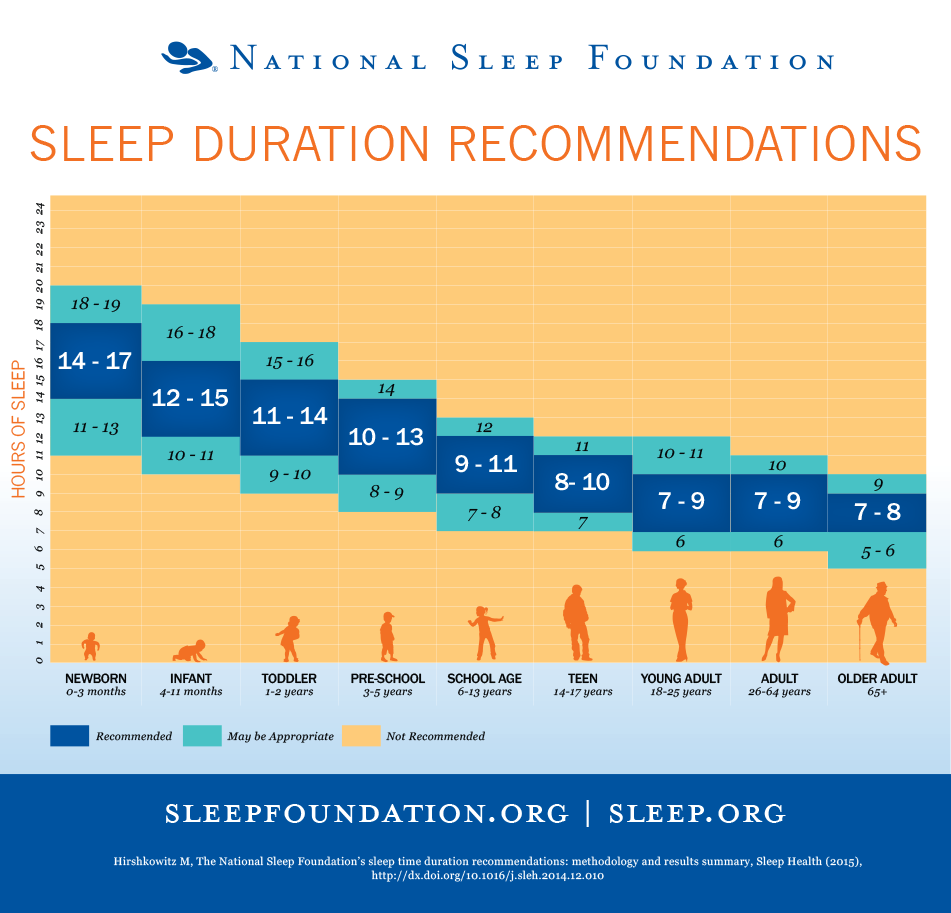
Comparing with other babies
A third option
to answer the
How much
sleep is enough?
question we all use at some point is
comparing with other babies
.
Interesting as this may be, it is mostly unreliable, because
all babies are so different to begin with.
Worse,
it can be quite frustrating to hear your friends report about
double
the hours you get :/ If that happens, please don't pay too
much attention - chances are those reported numbers are exaggerated (they usually are). And in any case sleep needs are totally individual.
Simply go through the checks
above and you may find you are doing absolutely fine and in fact have
the best suited arrangement for
your
little baby.
However, if you know, or want to know if there's room for improvement, start with the basics
discussed in the sleeping through the night pages. Also contact me anytime if you'd like some guidance, I and the team are here to help!
Article Author: Heidi Holvoet, PhD - Founder, senior sleep consultant

Heidi Holvoet, PhD, is the founder of the Baby Sleep Advice website and movement, an award-winning author, baby & toddler sleep consultant with 17+ years experience as well as a certified lactation counselor.
Over the years, Heidi has received several awards inluding a Mom's Choice Award (MCA) and National Parenting Awards (NAPPA) for her Baby Sleep Advice website, programs and books. Also, Baby Sleep Advice was awarded "Most Trusted Infant's Sleep Solutions Company 2023" in the Benelux Enterprise Awards 2023.
Heidi continually conducts personal research and participates in continued education and in that way stays up to date with current scientific and pyschosocial infant care.
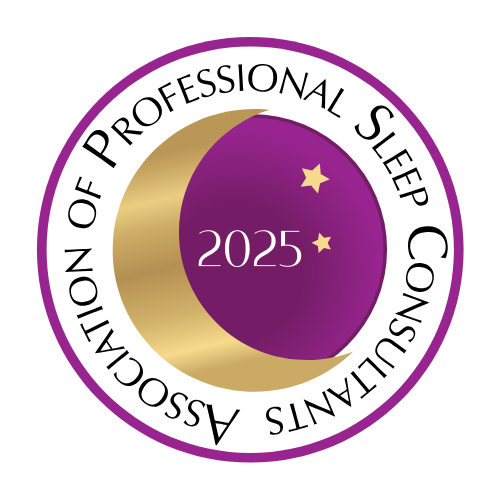
She is also a member of the Association of Professional Sleep Consultants of which she was one of the earliest contributors. She obtained her PhD degree in physics at the University of Ghent in Belgium.
Heidi is passionate about helping babies and their parents sleep more and better, with her trademark holistic and truly-no-tears approach that has been proven and praised time and again by parents worldwide to be effective and truly no-tears. Respect for you as a parent and your baby, is at the heart of Heidi's warm and kind support. Her approach always keeps in mind a baby's needs and abilities at any given age, is based on pediatric science and the most up to date knowledge in infant care and sleep science.
As well as the award-winning baby sleep programs, Heidi offers popular 1:1 consults and easy-access 30-minute SOS Sleep sessions.
Resources
[1] Sleep Duration From Infancy to Adolescence: Reference Values and General Trends Ivo Iglowstein, Oskar G. Jenni, Luciano Molinari and Remo H. Largo Pediatrics , 2003;111;302-307 doi: 10.1542/peds.111.2.302.

Baby waking every hour?
by Heidi Holvoet, PhD
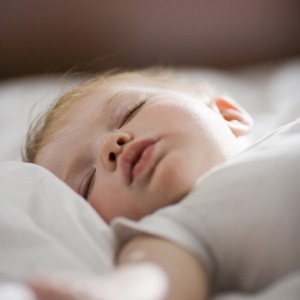
Sleep schedules by age
by Heidi Holvoet, PhD

Separation Anxiety
by Heidi Holvoet, PhD
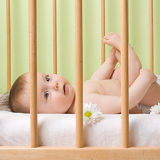
Crib safety guidelines
by Heidi Holvoet, PhD

Why does my baby wake up every hour?
by Heidi Holvoet, PhD

